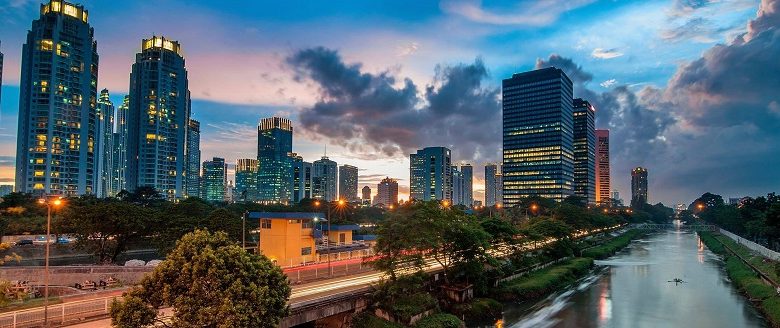
Inaccessible Indonesia: be grateful for the accessibility we have
We all know that throughout the world there are various access issues for disabled people, be it with shops, public transport or tourist attractions. But some places are a lot worse than others. We hear from new Disability Horizons writer Romario, who has Cerebral Palsy, about how living in Indonesia has made travelling, or doing anything, incredibly hard.
Earlier this year I received an email from a close friend of mine entitled: Where would you like to go this summer? It included a document called The Most Disabled-Friendly Cities in the World. I was instantly sceptical.
I have Cerebral Palsy, so use a wheelchair a lot of the time. I am able to walk on bended knees for a while on my own. However, if I need to stand for long periods or walk far distances, I need some kind of assistance, either in the form of someone holding my hand, a cane or better yet, a wheelchair. So travelling anywhere is, to say the least, tricky.
Full disclosure here – my last real vacation was about five years ago to Bali. It was before my high school graduation and with the whole class of 2012. It was OK, but I consider myself more of a homebody. I love to be able to just stay home and rest, watching my favorite TV shows.
OK, to be perfectly honest, I’d be happy to stay at home less and explore more. But my desire to stick with what I know is mostly fueled by my disability and the inaccessibility of everything around me. I cannot travel on my own without other people’s assistance. I cannot drive on my own and where I live there are not enough facilities to support my independence.
I opened the attached article and skim through it, just for curiosity reasons. Not surprisingly, all the cities listed have one thing in common – they’re located in developed parts of the world, so are universally-designed and inclusive. They’re all welcoming to anyone with a disability – a far cry from where I live, here in Indonesia.
Indonesia: still a far cry from a universal design status
In Indonesia, it’s hard to even find the basics – wheelchair-friendly pavements or accessible bathrooms for example. So accessibility for bigger things, such as airports, hotels, restaurants and even some shopping malls is far from ideal. As for getting between places, it’s practically impossible, especially if you rely on using a wheelchair. Getting in and out of vehicles is a nightmare, unless it’s a taxi. But even that’s not stress-free.
It is a stark contrast to developed part of the world, where access is much more readily available. From how easy it is to board a bus or train, to ramps and adapted toilets. I know it’s not perfect, but it’s a lot better than what we have here. Living in one of these cities would certainly make me eager to get out by myself and be independent.
Some of you may wonder why don’t I do something about it? After all, they say, it only takes one person to change the world. Well, change is hard. For far too long, disabled people have been marginalised. For our government, in particular, taking care of disabled people has not exactly been the priority. As for me, I don’t have the capital, resources or platform to make such difference. Even if I did have that, I don’t think the people in power here are ready to listen (another story can be told about this).
I hope that this article makes you realise how lucky you are to be able to live in such developed surroundings and environment, to have facilities that support your independent living. Not all people have that luxury. Maybe, what you’ve been taking for granted is the thing that other people on the side of the world want the most – decent facilities and support for independent living.
By Romario Kosasih
Get in touch by messaging us on Facebook, tweeting us @DHorizons, emailing us at editor@disabilityhorizons.com or leaving your comments below.
https://disabilityhorizonscom.onyx-sites.io/2017/02/we-talk-to-a-disability-rights-activist-whos-not-afraid-to-make-his-voice-heard/
https://disabilityhorizonscom.onyx-sites.io/2017/07/brief-history-time-space-disability/